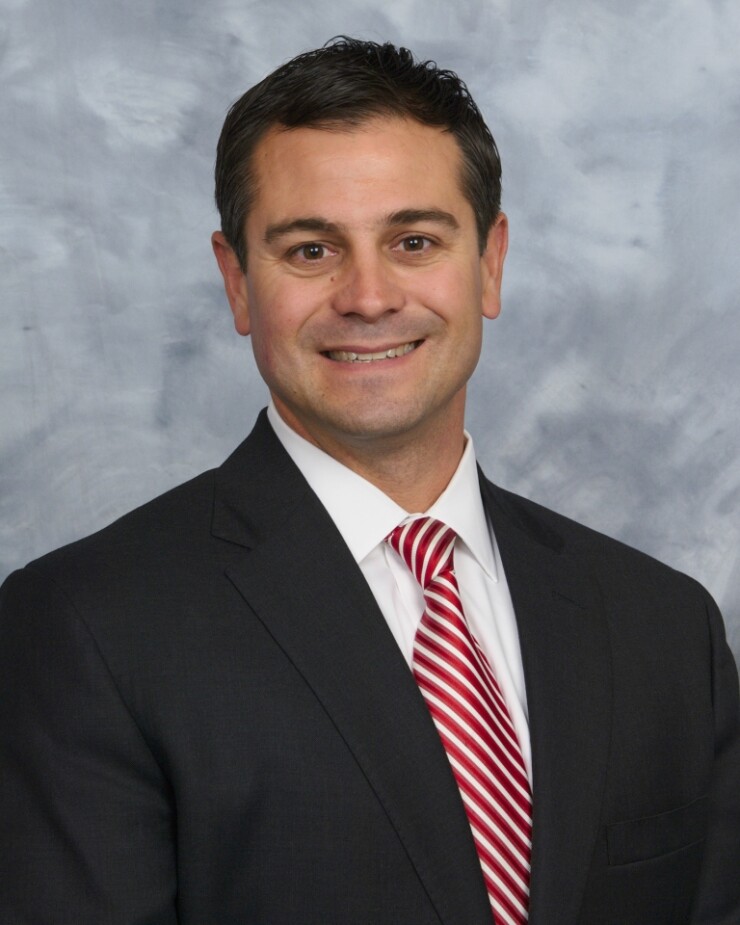You’ve landed the job, now what? That is the question for rookie advisors.
At one point, banks were swooping up would-be advisors right out of college and placing them in associate programs. In these programs, senior advisors would bring junior advisers onto their teams and mentor them. Many of the challenges they faced, such as lack of experience, knowledge and contacts, were mitigated by these programs. Today there are fewer of these programs and the challenges for rookie advisors remain.
Rob Comfort, the newly appointed president of CUNA Brokerage Services, advises rookies to seek out a mentor, like they would have in an associate advisor program. In particular, they should find a mentor who is a successful bank or credit union advisor.
“If they are not getting mentored during this time period, it really compromises the ability of advisors to succeed,” he says.
One of the biggest challenges for rookies is gaining clients. Rookies can leverage the experience of the advisor they are working under to gain new clients, says Doug Leonzi, vice president of BB&T Investment Services. For instance, if a 50-year-old client questions the qualifications a rookie half his age, the young advisor could call on his mentor, Leonzi says.

When his junior broker meet clients, Leonzi told him that if clients question his age to remind clients that he is a part of a team with many more years of experience than him.
Leonzi says he tells his clients the same thing about his own situation. Clients sometimes ask him how he has time to manage their money carefully when he is married, has three kids and still has time to play golf. He tells them he is a part of team that works to manage their clients’ money.
Hiring and mentoring junior advisors can be as beneficial to firms as it is to the rookies, says Kehrer Bielan Research & Consulting managing principal, Peter Bielan. It is easier for firms to mold a young advisor to their client approach than an older adviser.
Mentoring junior advisors could be as beneficial to firms as it is to the rookies, says Peter Bielan. It is easier for firms to mold a young advisor to their process. An older advisor who has been successful using one approach won't be as quick to change tactics at a new firm.
An older advisor who has been successful using one approach isn’t going to want to change tactics at a new firm, Bielan says. It doesn’t make sense for high-earning advisor to do that either.
Bielan says banks need to be hiring more rookies because there are not enough advisors in circulation. Year-after-year the number of reps in the field remains relatively the same and banks need new recruits to fill positions that old advisors once held, he says.
“This is the time when we should be increasing advisors,” Bielan says. “There isn’t an ambitious enough hiring goal.”
Comfort says it is naive for banks to think they can go out and recruit new talent without taking the time and resources to develop them within their own companies.

When rookies are on their own, Comfort recommends they create an activity plan for themselves that they follow every day. The plan should consist of concrete goals that they can accomplish such as how many cold calls they are going to make or how many appointments they are going to schedule.
“A lot of advisors say, ‘I want to grow my business to X, get this many clients and get to this AUM,’ but these are things they can’t control,” Comfort says. “Advisors need to ask themselves every day, ‘What can I do today that I can control?’”
Once advisors make an activity plan, Comfort says, they need to stick with it. They should have a mentor or supervisor hold them accountable to that plan so they will be successful.
“If they follow that activity plan, they will eventually have a breakthrough,” Comfort says.
When Comfort was a rookie right out of college in the 80s, he would make 100 cold calls a day. He found prospective customers by looking up small town business owners in the yellow pages.
“My manager said, ‘If you make 100 cold call a day, even if you don’t feel like doing it, on a good day you will talk to 30 of those people,’” Comfort says. “‘On a good day, eight to 10 of them will say they are interested and, on a good day, three of them will become clients.’”
Even though rookie advisors don’t need to be making as many cold calls, Comfort says, they need to have the same self-discipline as advisors who did.
“In credit unions and banks today, rookie advisors should have that same discipline to cultivating their referral network,” Comfort says.
Leonzi suggests that rookie advisors reach out to other bank employees to build their network and gain more referrals. “They will provide leads for you and you will provide leads for them,” he says.
Bank advisors have two clients to serve---their bank’s network branches and consumers, Bielan says. Without referrals from bank branches, advisors won’t have enough consumer clients.
The challenges for rookie bank advisors are really the same as for any adviser, Leonzi says. Rookie advisors need to network and become involved in their community the same as senior advisers would to grow their business. They can join a junior leader association or chamber of commerce group for young professionals. Leonzi’s ultimate advice for rookies: “Be aggressive. Stay focused. Don’t get discouraged.”





